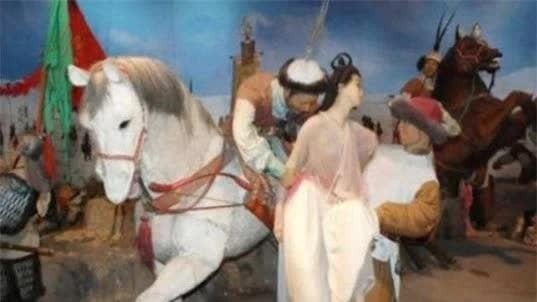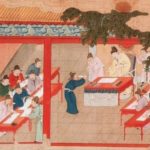In ancient times, Chinese dynasties established elite and formidable armies to protect their nation and prevent invasions from neighboring countries.
Much like today, ambitious young men often joined the military to defend their homeland and families. However, unlike the present, where women can enlist, it was illegal for women to join the army during feudal times. Hua Mulan, a female general who took her father’s place in the army, had to disguise herself as a man to fight.

Ambitious young men joining the military has parallels to today’s world.
The soldiers were predominantly young and middle-aged men, boasting robust health and robust physiology. Ancient wars often lasted from several years to decades, forcing soldiers to reside in barracks for extended periods without the opportunity to visit home. They were restricted in their movements and unable to satisfy their physiological needs for long stretches of time.
The suppression of physiological urges, coupled with monotonous training and harsh battlefield conditions, could lead to psychological issues for the troops. Sometimes, this resulted in extreme behaviors, such as the rape of civilian women, as soldiers sought to fulfill their personal desires.
To control the chaotic situation and improve the soldiers’ mental state, King Goujian of Yue implemented a brutally pragmatic method: he sent all the widows in the country to the military camps.
Since the arrival of these widows in the barracks, the morale and fighting spirit of the soldiers have improved significantly. However, the fate of these women was tragic as they endured humiliation and served multiple soldiers after the death of their husbands.

The presence of widows in the barracks boosted the soldiers’ morale and fighting spirit.
While this method may have soothed the troops’ psychology, it was morally reprehensible and sparked outrage among the populace. However, due to the lowly status of women at the time, the opposition was ineffective. In the eyes of the rulers, the sacrifice of these women was insignificant as long as the army achieved its desired results. Thus, this method persisted during the Western Han Dynasty and continued for thousands of years.
Later, Emperor Wu of Han reformed the system by strictly stipulating that soldiers could no longer choose wives from the widows in the country but instead from the wives and daughters of imprisoned criminals. Nonetheless, this approach remained unfair to women, particularly the daughters of prisoners.
While these measures addressed the physiological needs of the soldiers, they caused immense suffering to women. In ancient society, women had a very low status, and this profound humiliation incited great anger among the people. Thus, during the Ming Dynasty, Zhu Yuanzhang abolished this system to appease the discontent of the populace.
Apart from utilizing widows, several other methods were employed to address the physiological needs of ancient soldiers:
-
Bringing Wives: Although women were not permitted to engage in combat, soldiers could bring their wives to live with them in the barracks. This not only fulfilled physiological needs but also provided necessary care. However, this approach was rarely adopted due to the soldiers’ demanding schedules, battlefield risks, and the potential for jealousy and conflict among troops.
-
Spoils of War: After conquering an enemy city, soldiers were allowed to “indulge” for three days and nights. During this time, they could plunder and satisfy their physiological desires, inflicting upon conquered women the dual suffering of losing their homes and being raped.
-
Local Brothels: Following a victory, generals often took their troops to local brothels for emotional release. The women in these establishments went unpaid as they belonged to the defeated side and could not refuse the demands of the victors.
-
Abduction: In some cases, soldiers could raid the opposing army’s camps and abduct women. These captives were then distributed as rewards to meritorious soldiers to boost morale.
While these measures addressed the physiological needs of the soldiers, the toll of war on humanity is immense. Whether in the past or present, we all yearn for a peaceful world where people can live better lives, free from the ravages of war.

































